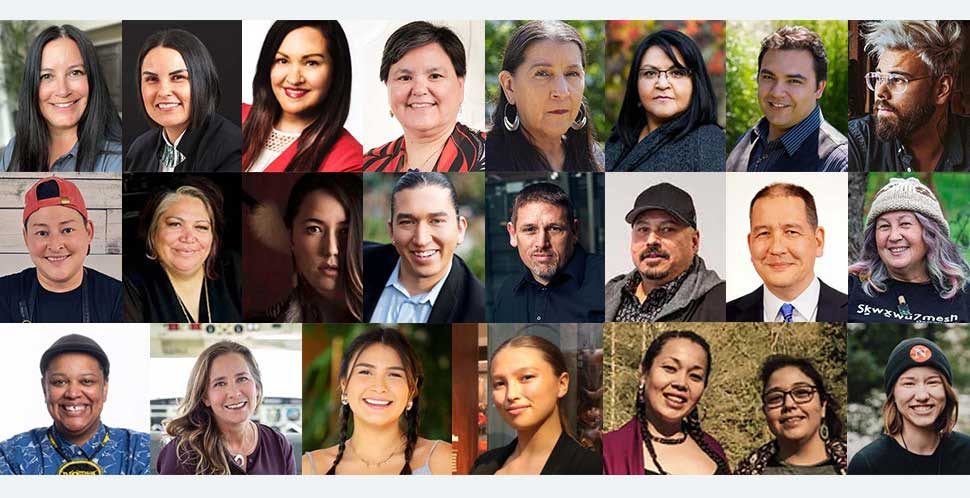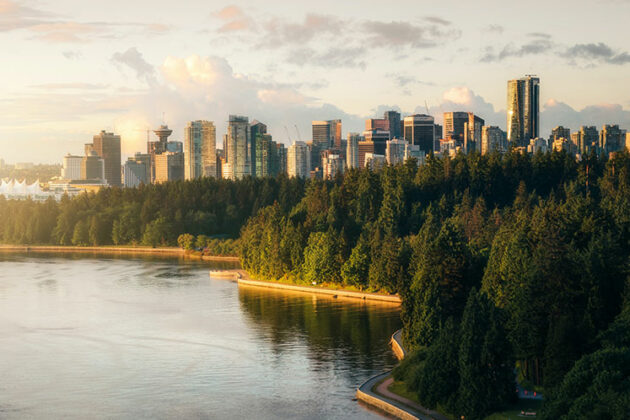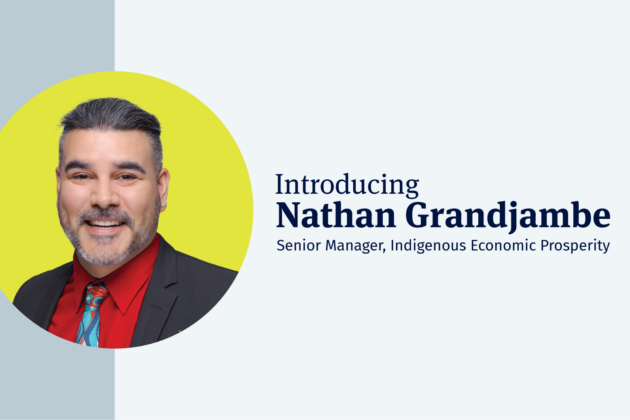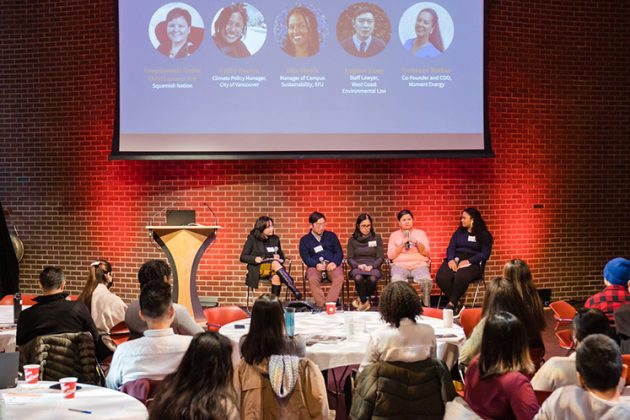This National Indigenous Peoples Day, we honour and celebrate Indigenous leaders in the community who work daily to increase the visibility and inclusion of Indigenous individuals and businesses, smash stereotypes, build wealth and prosperity for Indigenous communities, and educate people about the rich cultural traditions and storied history of local Nations.
While this list is by no means comprehensive, we hope to introduce (or re-introduce) you to the work of several local visionaries who we find inspiring, informative and engaging. They are knowledge-keepers, artists, business people, thought leaders and community pillars based primarily on Coast Salish territories, including that of the xʷməθkʷəy̓əm (Musqueam), Sḵwx̱wú7mesh (Squamish), and səl̓ilwətaɁɬ / sel̓íl̓witulh (Tsleil-Waututh) Nations. However, we have also nominated some leaders based farther afield on traditional Lekwungen territories of the Songhees, Esquimalt and W̱SÁNEĆ Nations, and from Haida Gwaii.
Meet them below.
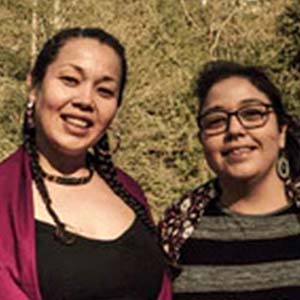
Lynn-Marie and Melissa-Rae Angus
Co-Founders, Sisters Sage
Lynn-Marie and Melissa-Rae Angus are sisters and co-founders of Sisters Sage, an Indigenous brand that crafts wellness and self-care products using traditional ingredients prominent in Indigenous medicine, wellbeing and culture. The sisters share parts of their heritage and cultural memories through each product: for example, their Smokeless Smudge Spray is made with sweetgrass and tobacco leaf. They are also known for speaking out against the socio-economic gap between Indigenous and non-Indigenous people in BC and Canada, hoping to empower other Indigenous entrepreneurs. Lynn-Marie and Melissa-Rae’s hail from Gitxaala, Nisga’a and Métis Nations.
Lynn-Marie-Angus | Instagram | Instagram
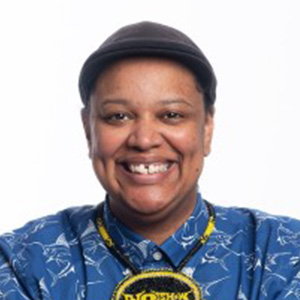
Orene Askew
independent artist / DJ O Show
Orene Askew, also known as DJ O Show, is an award-winning Two-Spirit Afro-Indigenous artist, performer and public speaker, and a mainstay of Vancouver’s queer and Indigenous communities. She incorporates the teachings from both of her cultural backgrounds into everything she does – and she does a lot. In addition to DJing and hosting events – including Vancouver Indigenous Fashion Week – she is an inspirational speaker and a former member of the Squamish Nation Council. She is the recipient of the 2018 Stand Out Award from the Vancouver Pride Society and 2021 Alumni Excellence Award from Capilano University. Orene is a proud member of the Skwxwú7mesh (Squamish) Nation. Photo: Belle Ancell
Twitter | LinkedIn | Instagram | Facebook
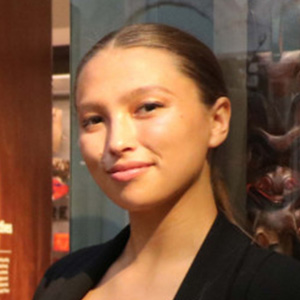
Sierra Tasi Baker
Lead Indigenous Urban Design Consultant, Sky Spirit Studio Inc.
Sierra focuses on furthering Indigenous design and research methodologies through combining oral history, primary archival research, Traditional Ecological Knowledge (TEK) and Coast Salish design techniques. Sierra has worked extensively with museums, universities, municipalities, and businesses to improve understanding of decolonization and etiologial design. She works to continually develop meaningful Indigenous-led design projects. Sierra is also one of the choreographers for Butterflies in Spirit, a Missing and Murdered Indigenous Women and LGBQT2+ advocacy and dance group founded by #MMIW advocate Lorelei Williams. Sierra is from the Sḵwx̱wú7mesh Úxwumixw (Squamish Nation) and is also xʷməθkʷəy̓əm (Musqueam), Kwakwaka’wakw/Musgamagw Dzawada’enuxw, Tɫingit, and Magyar (Hungarian). Her Kwak’wala name is “Gesuqwaluck” which means “Creator or Creative one.”
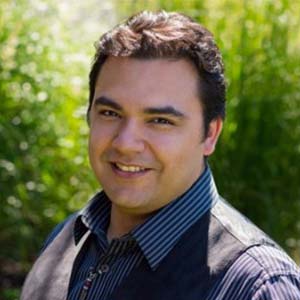
Frank Busch
Co-Founder & CEO, NationFUND
Frank Busche holds an undergraduate degree in Indigenous Studies from the University of Manitoba, five certificates from the Canadian Securities Institute and a post-graduate certificate in finance from Harvard University. He has dedicated his career to bringing low-cost capital to Indigenous communities in Canada through a one-of-a-kind Indigenous treasury service. He was involved in deploying over $725 million to First Nations across the country, and has visited over 275 First Nations communities. He’s also a published author and past recipient of the Burt Award for First Nations, Métis and Inuit Literature. Frank is a member of the Nisichawayasihk Cree Nation.
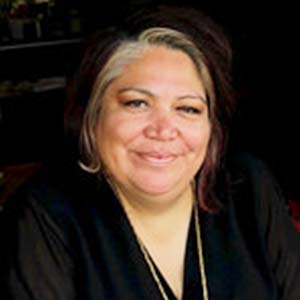
Inez Cook
Co-Founder and Owner, Salmon n’ Bannock
Inez Cook is known for her determination, strong work ethic and commitment to the community. She co-founded award-winning Salmon ‘n Bannock, which remains Vancouver’s premiere restaurant devoted to First Nations cuisine, and will soon be opening its second location, Salmon ’N Bannock on the Fly, at YVR Airport. She served on the Board of Directors for Aboriginal Tourism British Columbia from 2014 through 2021. For the past 28 years, she has also worked in the aviation industry for several airlines, enabling her to live in far-flung destinations like Saudi Arabia, India, Egypt and Nigeria. An involved speaker, educator and mentor, she has spoken at various venues on topics related to cuisine, entrepreneurship and business. Inez is a member of the Nuxalk Nation.
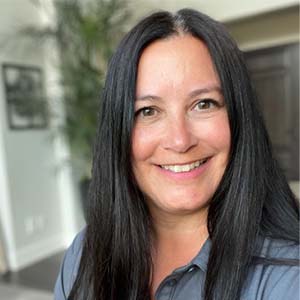
Alison Evans
Founder, Director of Marketing and Indigenous & Strategic Partnerships, Gulf Island Seaplanes
Alison Evans co-founded the family-run and -owned Gulf Island Seaplanes with her husband in 2014, drawing on their combined love of adventure and travel. Over the years, Alison has worked tirelessly to grow the business in a way that its activities enhanced and enriched the communities it connected, including building partnerships that elevate Indigenous businesses, communities and networks. Today, Gulf Island Seaplanes offers daily direct flights between Vancouver International Airport and Gabriola Island, scenic flights from Vancouver Harbour throughout summer seasons, scheduled flights to Hornby Island, and charters service to a number of other locations across BC’s coast. Alison is Gitxsan from the Hagwilget Village First Nation.
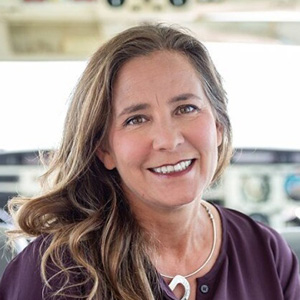
Teara Fraser
Founder, Iskwew Air
In 2002, Teara Fraser became a certified commercial pilot. In 2010, she founded an aerial survey company. And in 2019, she started Iskwew Air, a small airline that offers charter services to remote Indigenous communities across BC. Teara chose the name Iskwew (“woman” in her ancestral Cree language) to celebrate her Indigenous heritage and the work of women fighting for gender equality. Her story was included in the DC Comics graphic novel Wonderful Women of History, which was published in September 2021. Tera is Métis of Cree ancestry. Photo: Small Business BC
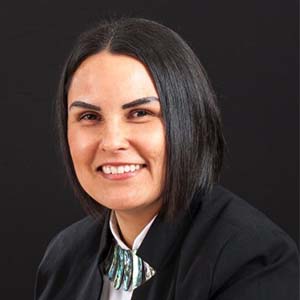
Carol Anne Hilton
CEO/Founder, Indigenomics Institute
Carol Anne Hilton is a tireless champion of increasing the visibility and inclusion of Indigenous business and economic growth globally. She focuses her considerable expertise across a range of social, ecological and economic projects driving multi-generational Indigenous wealth creation. Her book Indigenomics: Taking a Seat at the Economic Table explores the visibility, role and responsibility of the emerging modern Indigenous economy as the foundation for economic reconciliation. Carol Anee is of Nuu cha nulth descent from the Hesquiaht Nation on Vancouver Island.

Sxwpilemaát Siyám (Chief Leanne Joe)
Transformative Storyteller for Economic Reconciliation, Squamish Nation
Sxwpilemaát Siyám, also known as Chief Leanne Joe, is one of 16 Hereditary Chiefs of the Squamish Nation and the first female Chief of her family. A visionary and respected knowledge keeper, thought leader, facilitator, and teacher, she is passionately committed to building self-reliance, resilience and tools to build a broad, systems thinking and storytelling-based framework for reconciliation. She is motivated by the desire to pass on the love of her roots and ancestral heritage, and the creation of tools, knowledge and connection to achieve a balanced, peaceful future for future generations in which wellbeing is as at the heart of the economy. She is the Transformative Storyteller for Economic Reconciliation at Simon Fraser University and recently penned “Step Into the River: A Framework for Economic Reconciliation” based on feedback from Indigenous thought leaders and community economic development practitioners from across the province.
LinkedIn | Twitter | Framework for Economic Reconciliation

Sage Lacerte
Founder & CEO, Sage Initiative
Sage Lacerte founded Sage Initiative in 2019 to help build wealth and prosperity for Indigenous women and their families and communities. The organization focuses on investments in Indigenous-owned social purpose businesses and trusts, helping to ensure Indigenous wealth stays in Indigenous communities and contributes to a circular economy. Prior to founding Sage Initiative, Sage served as the National Youth Ambassador of the Moose Hide Campaign, a grassroots movement of Indigenous and non-Indigenous men and boys that works to end violence against women and children in Canada. Sage is Carrier from the Lake Babine Nation.
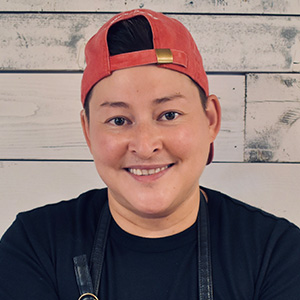
Chef Heat Laliberte
Freelance Chef and Consultant, Founder, One Arrow
Heat Laliberte spent his youth in the prairies of Saskatchewan and when he was a teenager, he and his family moved to Vancouver in 2002. At 20, he sought out a job cooking in the heart of Davie Village and fell in love with the camaraderie of the West End’s LGBTQ2S+ community. Wanting to pursue cooking as a career, Heat attended Vancouver Community College’s Culinary Apprenticeship Program. Afterwards, he worked in many professional kitchens, entranced with the sense of discovery, stimulation and exhilaration from working alongside Vancouver’s best leaders. Heat went on to work in some of Vancouver’s top kitchens, including Bluewater Café and the Fairmont Pacific Rim hotel, and travelled to Rio de Janeiro and Pyeongchang to cook for athletes competing in the Summer and Winter Olympic Games. In 2017, he founded One Arrow, which produced handmade, naturally smoked and locally sourced bacon. The company’s products were found in the best artisan butcher shops and grocers in Vancouver. Heat recently sold his business to pursue studies in Food Science at BCIT. He continues to freelance as a chef and consultant, most recently with a collaboration with Nk’Mip Cellars on a dinner and wine kit for National Indigenous Peoples Day. Heat is a proud member of the Cree and Dene Nations.
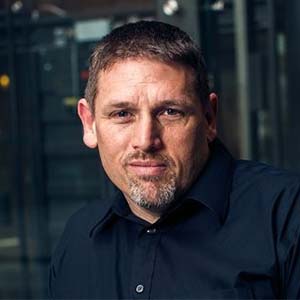
Lawrence Lewis
Founder, OneFeather
Lawrence Lewis has dedicated his career to working with First Nations people as an educator, political activist, policy writer and environmentalist. He founded OneFeather in 2014 to give First Nations a much-needed platform to discuss important topics, increase community engagement, and build strong, empowered and unified Nations. Under his leadership, the organization has become a leader in electronic voting, vote management, and membership registrar technology for First Nations in Canada. Lawrence is a member of the We Wai Kai Nation from central Vancouver Island.
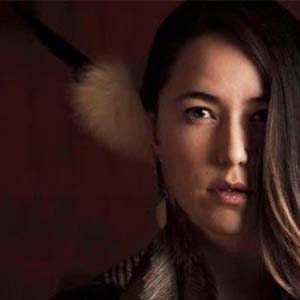
Joleen Mitton
Founder, Vancouver Indigenous Fashion Week / Founder, All My Relations Entertainment / Co-Founder, Supernaturals Modelling
Born in East Vancouver, Joleen Mitton spent 18 years travelling the world and working as a professional model. She channeled her passion for Indigenous fashion by founding All My Relations Entertainment, a company that produces Indigenous fashion shows featuring clothing designed by local Indigenous designers and worn by models of First Nation, Métis and Inuit descent. She also founded Vancouver Indigenous Fashion Week and co-founded Supernaturals Modelling, both of which advocate for high-end Indigenous representation in the commercial and fashion world. She also works with Indigenous communities through numerous non-profits, including Aboriginal Urban Butterflies Day Camp, a program for children in foster care. Joleen is Plains Cree from the Sawridge Nation in Alberta.
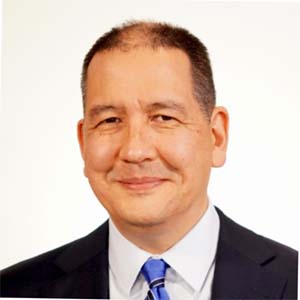
Mark Podlasly
Director, Economic Policy, First Nations Major Project Coalition
A prolific policy advisor, economic analyst and strategist, Mark Podlasly is an expert on the intersection of Indigenous-corporate governance and infrastructure issues. He has over 25 years of extensive global experience on developing capital projects connected to energy, natural resources and community infrastructure. He also serves as Director of Economic Policy and Initiatives at the First Nations Major Projects Coalition, a national 70+ Indigenous nation collective that seeks ownership of major infrastructures, where he is a leading and contributing writer of numerous resources and publications, including the landmark Centering First Nations Concepts of Wellbeing: Toward a GDP-Alternative Index in British Columbia and numerous resources on Indigenous access to capital, financing First Nations participation in major projects, and Indigenous leadership and opportunities in the net-zero transition. Mark holds a Harvard University master’s degree and is a regular speaker at global business and governance events including the International Finance Corporation’s annual sustainability conference. Mark is part of the Nlaka’pamux Nation, Cook’s Ferry Band.
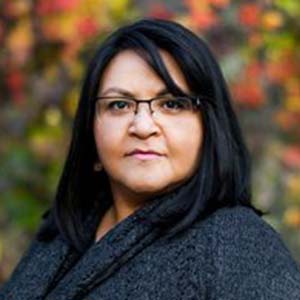
Eden Robinson
Award-winning Author
Acclaimed multi-award-winning author Eden Robinson is one of Canada’s first female Indigenous writers to gain international attention and penned the beloved Trickster series. Wickedly wry, funny and heart-tugging, her tales frequently centre the experience of coming of age in and around First Nations communities. Her second publication and debut novel Monkey Beach is set in her childhood home of Kitamaat, written in Vancouver, and deeply suffused with her love of her community. Monkey Beach received the 2001 Ethel Wilson Fiction Prize and was shortlisted for the Scotiabank Giller Prize and the Governor General’s Award for English-language fiction — it should be required reading in Canadian middle or high-school curricula. Eden has used her celebrity to platform social justice and equity issues, such as the lack of subsidized housing for urban Indigenous people and the limited resources allotted to Indigenous healthcare. Although minimally active on web or social media, her works are must-reads. Eden is a member of the Haisla and Heiltsuk First Nations.
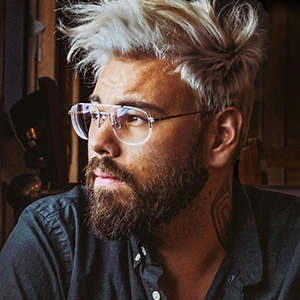
Patrick Shannon
Founder, InnoNative / Co-Founder, Supernaturals Modelling
Patrick Shannon is an award-winning film director, social entrepreneur, photographer, and university instructor. His work centres around social and cultural justice, and the elevation of marginalized voices through education, youth mentorship, media and technology. He runs InnoNative, a film production company that creates documentaries, music videos and scripted narratives from an Indigenous perspective; and co-founded Supernaturals Modelling, the world’s first all-Indigenous modelling agency that addresses issues of racism and tokenism in the media and fashion industries. Patrick is Haida from Haida Gwaii, BC.
LinkedIn | Twitter | Instagram
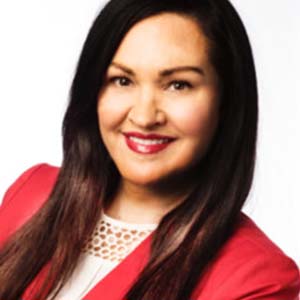
Angela Sterritt
Multi-platform Journalist, CBC
Known for her compassionate, unflinching investigations into the wide-ranging impacts of systemic racism on Indigenous lives, Angela Sterritt is a multi-award-winning journalist, writer and public speaker who has appeared on Vancouver Magazine’s Power 50 list of the most influential people in Vancouver. She currently hosts the CBC original podcast “Land Back” and has worked with the CBC since 2004, including as a multi-platform reporter with CBC Vancouver since 2016. Her upcoming book Unbroken is part memoir and part investigation into the murders and disappearances of Indigenous women, and will be published on September 27, 2022. Her reporting has won high accolades, including an Academy award in 2021 (Canadian Screen Wards) for Best Reporter of the Year in Canada for her coverage of an Indigenous man and his granddaughter who were arrested while trying to open a bank account. In 2020, she gave a TEDx Talk titled Reconciling the Power of One Story on deconstructing stereotypes of Indigenous peoples. Angela is from the Gitanmaax community of the Gitxsan Nation on her father’s side, and from Bell Island Newfoundland on her mother’s.
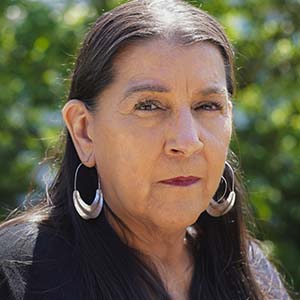
Debra Sparrow
Multimedia Artist & Knowledge Keeper, Musqueam Nation
Debra Sparrow is a renowned multimedia artist, knowledge-keeper and community leader whose work features prominently in Vancouver’s urban context. In 1983, she was part of a group of women who revived the lost art of Salish textiles. Since then, she has combined Salish designs and weaving with contemporary methods and is known for her geometric, hand-spun blankets and hangings. She was instrumental in naming the City of Vancouver’s cultural strategy, “Culture|Shift: Blanketing the City in Arts and Culture.” Debra designed the logo of the Canadian Men’s Hockey Team for the 2010 Olympic and Paralympic Winter Games in Vancouver. Her work is currently exhibited in various museums and institutions and in public art installations, including the University of British Columbia and Vancouver International Airport. Debra is from Musqueam Nation. Photo: Vancouver Biennale
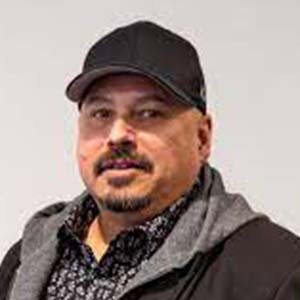
Marcel Swain
CEO, Lu’ma Native Housing Society
Marcel Swain is CEO of Lu’ma Native Housing Society, the largest Indigenous housing society in BC. Over his 30-plus year tenure, he helped to build a portfolio of 15 housing projects with nearly 300 units and a market value of over $40 million. He has been instrumental in forging partnerships that have pioneered sustainable ways to build and manage Indigenous housing projects. Previously, Marcel was a senior administrator for the Canada Mortgage and Housing Corporation, Canada’s national housing agency, and helped to found National Aboriginal Housing Association, which advocates on behalf of non-reserve Aboriginal housing providers. He has served as president, vice president and director of several non-profit housing societies, and also served as director of the Vancouver Aboriginal Justice Council Society. Photo: Impact Canada

Khelsilem Tl’aḵwasik̓an
Community Leader & Teacher, Squamish Nation
Khelsilem Tl’aḵwasik̓an is a highly sought-after speaker, advisor, and teacher from Skwxwú7mesh Nation. They are one of the most prominent teachers of Sḵwx̱wú7mesh sníchim, the spoken by his people. They are also a member of numerous government advisory committees, served on several boards for local non-profits. They are currently Chairperson of the Squamish Nation Council, a decision-making body that sets the overall direction and policy agenda of the Nation, and a primary spokesperson for Sen̓áḵw, the housing and economic development venture built on the site of the village of the same name. Khelsilem also served as board director for Vancity Credit Union, and taught the Squamish Language Proficiency Certificate Program at Simon Fraser University. They are a fledgling icon in the local LGBQT2S+ community.
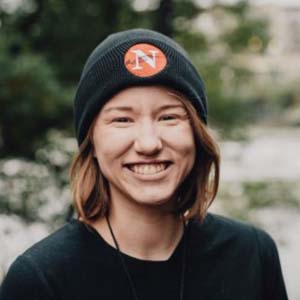
Stephanie Kwetásel’wet Wood
Journalist, The Narwhal
Stephanie Kwetásel’wet Wood is a journalist whose evocative, clear-eyed narratives about Indigenous rights, creativity, the arts, sustainability, conservation, and social justice are the calling card of her body of work. Currently an author at The Narwhal, her byline has also appeared at The Tyee, Media Indigena, CBC and the National Observer, and CiTR 101.9 FM. The Canadian Association of Journalists nominated her for the Emerging Indigenous Journalist Award in both 2020 and 2021 for her portfolio. Stephanie is from the Skwxwú7mesh (Squamish) Nation.
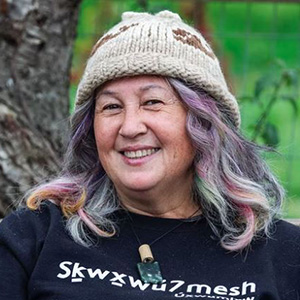
T’uy’t’tanat-Cease Wyss
Coast Salish weaver, ethnobotanist, community leader
T’uy’t’tanat is Wyss’s ancestral name, which means “woman who travels by canoe to gather medicines for all people”. Wyss’s interdisciplinary practice encompasses aspects of visual art, fiber arts, ethnobotany, storytelling, and community education, among other interdisciplinary approaches, and she has been working with new media, performance, and interdisciplinary arts for more than 30 years. As a Coast Salish weaver, Wyss works with wool and cedar and uses indigenous plants in the dyeing process. Wyss also engages with beekeeping and gardening practices as part of community-led initiatives and land remediation. T’uy’t’tanat-Cease Wyss is a Skwxwú7mesh (Squamish), Stó:lō, Kanaka Maoli (Hawaii’an), Irish-Métis, and Swiss multi-media artist, ethnobotanist, independent curator, educator, and activist based in Vancouver, British Columbia.
Further Reading
Thank you for reading! If you are a non-Indigenous business leader, investor or organizer interested in learning more about economic reconciliation, there are numerous Indigenous organizations doing some groundbreaking work on building long-term prosperity and self-reliance for their communities. Ten of them are featured in last year’s Spotlight on Economic Reconciliation, along with a list of other resources and further reading.
